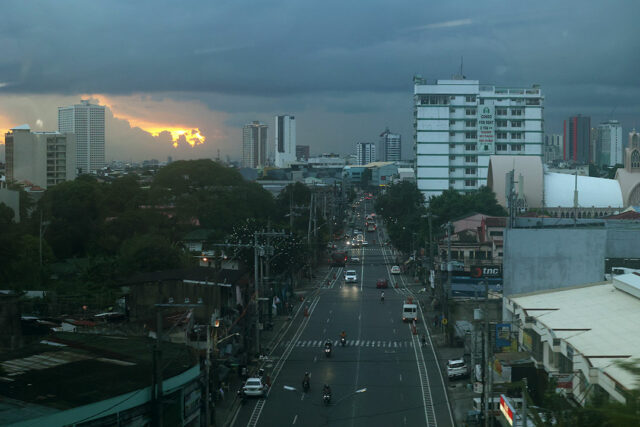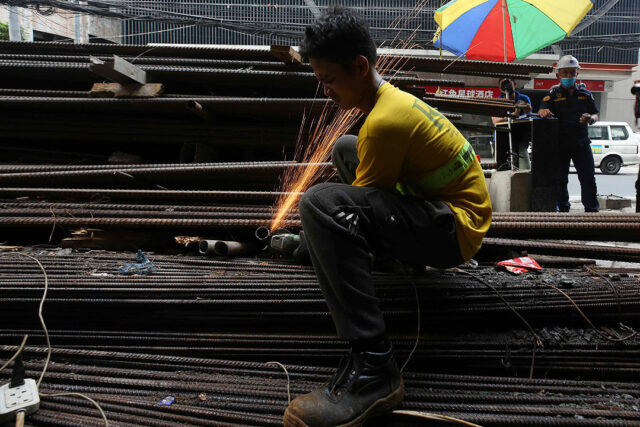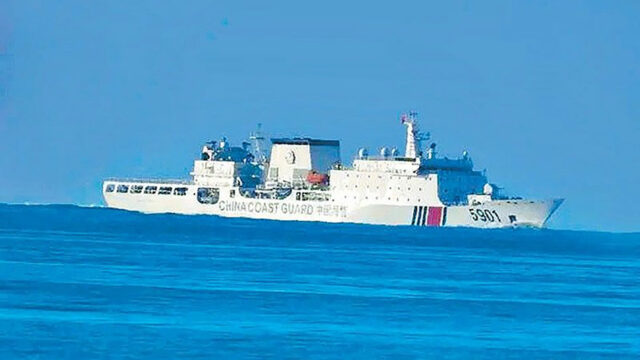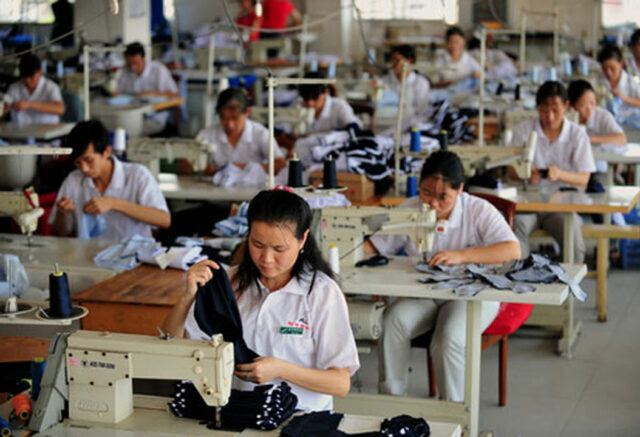By Kyle Aristophere T. Atienza, Reporter
US PRESIDENT-ELECT Donald J. Trump’s pick for top diplomat urged China to stop “messing around” with the Philippines and Taiwan, saying Washington would keep its focus on the Indo-Pacific region.
The US and China could avoid conflicts if the latter would not destabilize the Indo-Pacific region, Florida Senator and Secretary of State-designate Marco Antonio Rubio said at his confirmation hearing, based on a video streamed live on Meta.
China should “stop messing around with Taiwan and with the Philippines, because it’s forcing us to focus our attention in ways we prefer not to have to,” he said.
Washington intends to keep its defense commitment to the Philippines and Taiwan, warning China against any “irrational” acts against them.
“The actions that they are taking now are deeply destabilizing,” Mr. Rubio said. “They are forcing us to take actions because we have defense commitments to the Philippines and we have commitments to Taiwan that we intend to keep.”
“If they want to keep some path of stabilization in our relationship, even as we remain engaged in global competition, and in some cases more adversarial than others, they really need to stop messing around with the Philippines and Taiwan,” he added.
Mr. Rubio’s statement gives clarity to questions hounding the stability of US-Philippines relations under Mr. Trump, who is set to take office on Jan. 20.
Mr. Trump has been known for his America-first policy, raising questions for US allies in the region.
“These pronouncements from the secretary of State-designate Mr. Rubio are undoubtedly reflective of the stance of Trump vis-a-vis China even during his first tenure as America’s president,” Josue Raphael J. Cortez, a diplomacy instructor at De La Salle-College of St. Benilde’s School of Diplomacy and Governance, said in a Facebook Messenger chat.
“We can expect that the trail the US will be pursuing as it works to counterbalance Chinese influence and strategic actions towards both the Philippines and Taiwan will be very much alike with the strategies it employed during the first Trump regime,” he added.
Mr. Rubio accused of China seeking to establish preeminence in the region, which he said will have “historical ramifications” for small nations.
The 53-year-old Republican said China believes “all roads lead back to Beijing.” But countries like Australia, Japan, South Korea and Vietnam do not view themselves as “tributary states,” he pointed out.
Mr. Cortez said given China’s continuous militarization efforts against Manila and Taiwan, “there is also a possibility that aside from pursuing a similar path, the US may further bolster and expand its presence within the region.”
“These are all for the sake of helping out the two countries in ascertaining their territorial integrity and security,” he added.
‘GEOPOLITICAL GAMESMANSHIP’
Ensuring a proper geopolitical balance between the US and China should be a major strategy of Washington, Mr. Rubio, who has served in the Senate since 2011, told the nomination hearing at the Senate foreign relations committee that lasted about five hours.
Regarding Taiwan, he said Washington should make China understand that the cost of invading the self-ruled island would be higher than the benefit.
“I think that’s critical, not just to defending Taiwan (but) to preventing a cataclysmic military intervention in the Indo-Pacific.”
Mr. Rubio described China as the “most potent and dangerous adversary” the US has ever faced.
China claims the South China Sea almost in its entirety, including parts of the waterway that fall within the Philippines’ exclusive economic zone (EEZ).
Manila on Tuesday accused China of intimidating Filipino fishermen near Scarborough Shoal and normalizing its “illegal presence” after Beijing sent its biggest coast guard ship into the Philippine EEZ.
The monster ship, first detected near the Zambales coast on Jan. 4, was last spotted 77 nautical miles west of Capones Island, the Philippine Coast Guard said on Tuesday.
“In line with the US’ ‘ironclad commitment’ to us — popularized by Trump during his first term — and our ever-closer ties with Washington under the Marcos regime, we can expect more agreements between the two leaders given that even Republicans themselves highly value the security commitments America forge with the rest of the world,” Mr. Cortez said.
“The Indo-Pacific is the West’s gateway to further expand its trade with Southeast and East Asia, therefore it is also part and parcel of their national interest that they get to have the dominant hand in its affairs,” he added.
Ateneo Policy Center Senior fellow Michael Henry Ll. Yusingco said the Marcos government should resist the temptation to use Mr. Rubio’s soundbite in its national security messaging.
“This is how the US projects power, but the Marcos government shouldn’t rely on this as a commitment set in stone,” he said via Messenger chat.
He urged the government to build a constituency behind its national security policy “by highlighting what we need to do to protect ourselves.” “We must be projecting internal fortitude and resolve to defend our sovereignty and way of life. We shouldn’t be acting like a former colony of the US,” he added.
“The US is an ally and their politicians can huff and puff against their adversaries all they want,” Mr. Yusingco said. “But we shouldn’t allow ourselves to be a pawn in their geopolitical gamesmanship.”
“The Marcos administration shouldn’t project itself as a mere US mouthpiece in Asia. So he shouldn’t conflate this soundbite with our national defense messaging,” he added.
Also on Thursday, Philippine and Chinese representatives met in Xiamen, Fujian in China — the hometown of majority of Chinese Filipinos — for their 10th bilateral consultation on the South China Sea, the Philippines’ Department of Foreign Affairs (DFA) said in a statement.
DFA Undersecretary Ma. Theresa P. Lazaro and Chinese Vice Foreign Minister Chen Xiaodong had “frank and constructive discussions” on the situation in the South China Sea and other bilateral issues.
“Our position is clear and consistent, but so is our willingness to engage in dialogue,” Ms. Lazaro said in her opening remarks. “We firmly believe that despite the unresolved challenges and differences, there is genuine space for diplomatic and pragmatic cooperation in dealing with our issues in the South China Sea.”
The two sides exchanged views on the Philippines’ rotation and reprovisioning missions to BRP Sierra Madre at Second Thomas Shoal and “agreed to continue its implementation to sustain the de-escalation of tensions without prejudice to respective national positions.”
The Philippines also expressed serious concern about the recent activities of China Coast Guard ships including its biggest one near Philippine maritime zones. These are inconsistent with the 1982 United Nations Convention on the Law of the Sea the Philippine Maritime Zones Act, it said.
“The meeting agreed to reinvigorate the platform for coast guard cooperation,” the DFA said. “The two sides also identified ocean meteorology as an area of focus for a workshop on marine scientific cooperation.”
The Philippines will host the next bilateral consultation mechanism at a later date, it said.












